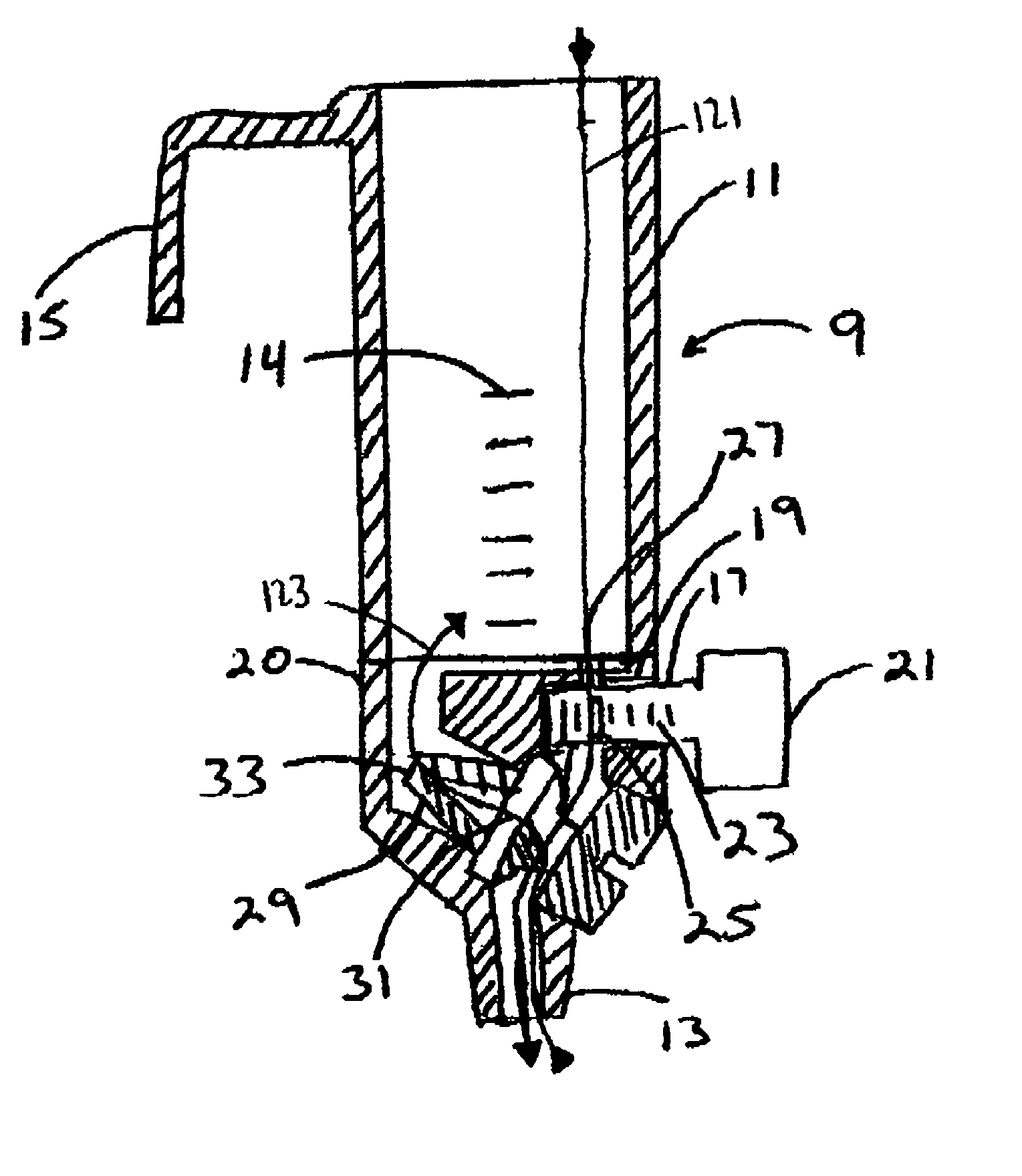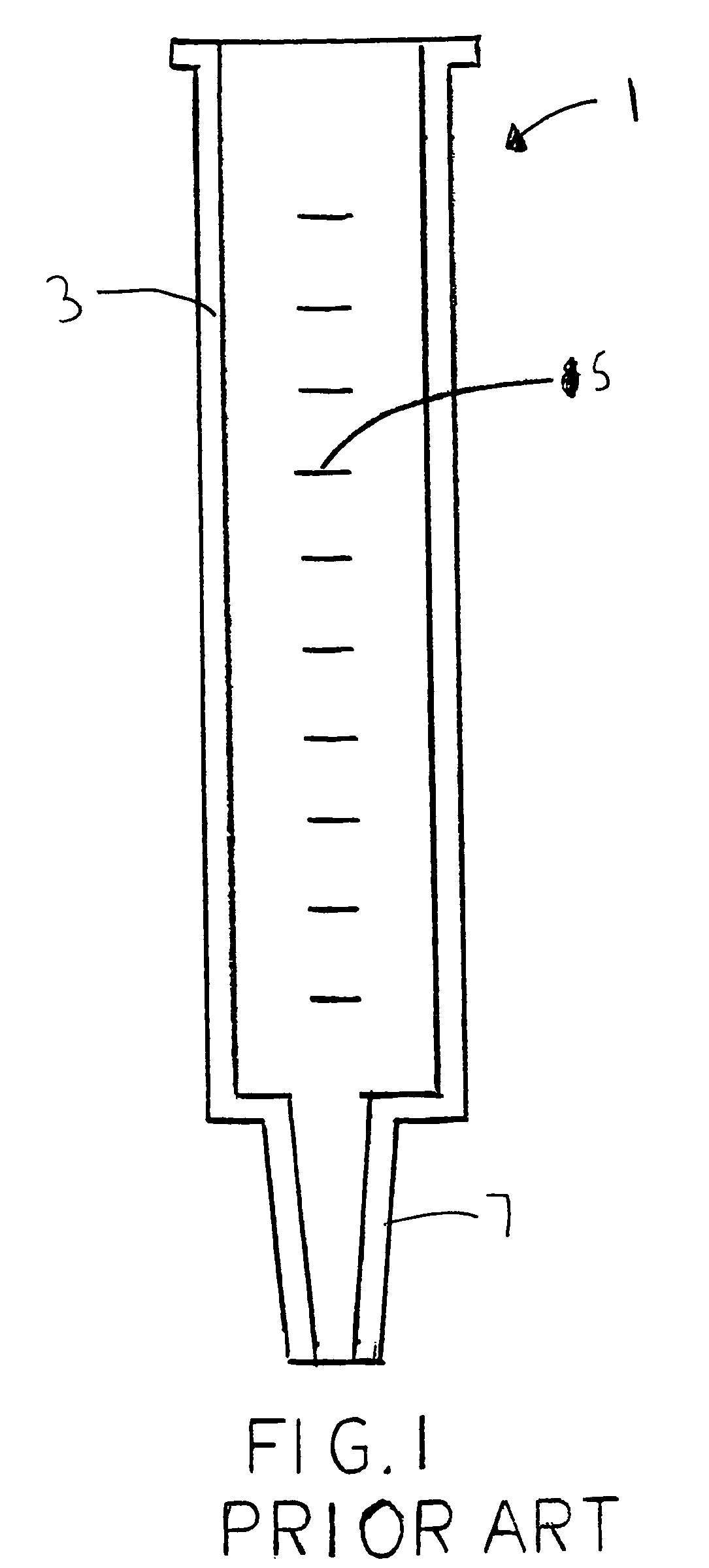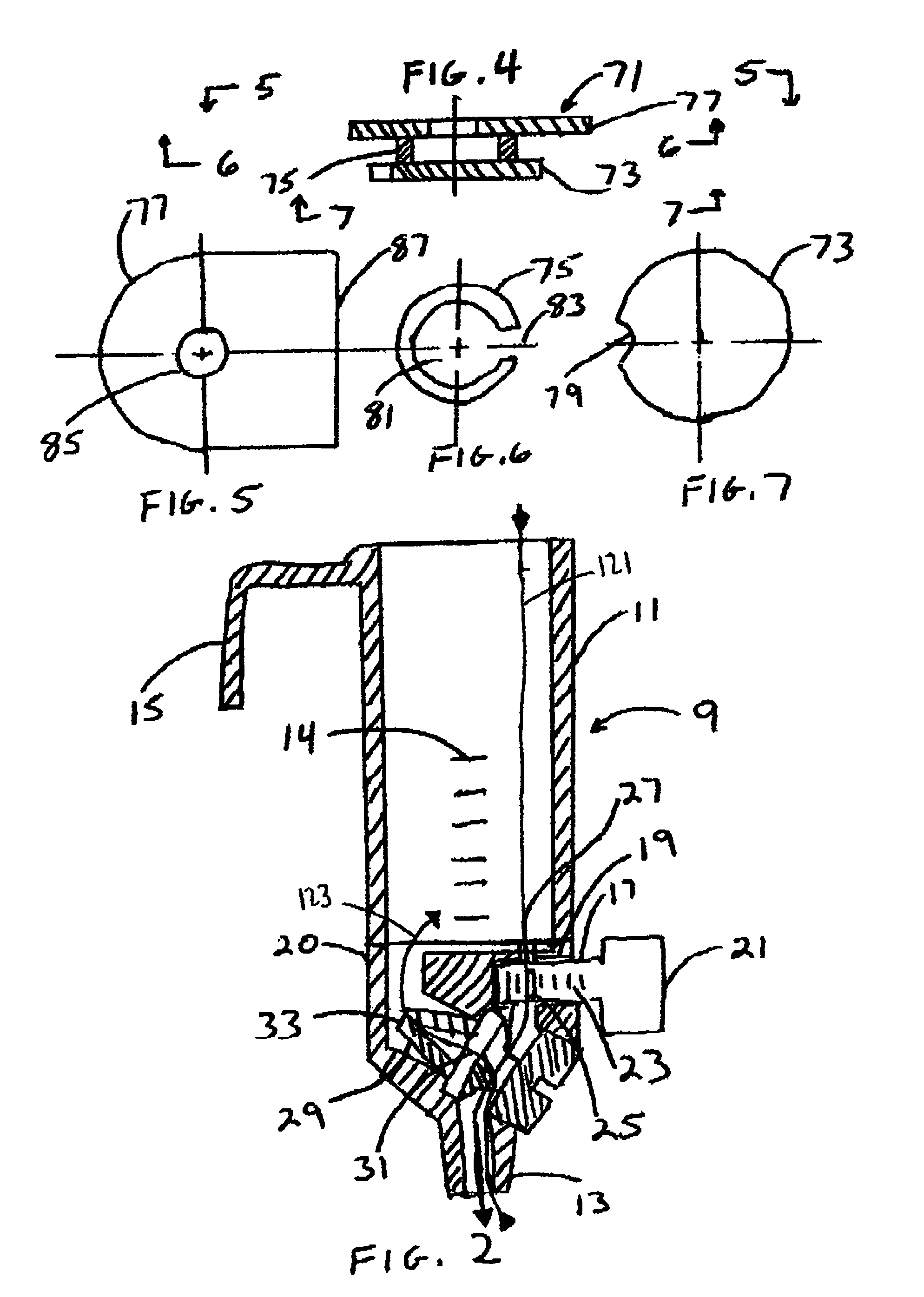Controlled gastric bolus feeding device
a feeding device and gastric tube technology, applied in the field of gravity bolus feeding devices, can solve the problems of increased feeding time, reflux of stomach contents, and possible aspiration
- Summary
- Abstract
- Description
- Claims
- Application Information
AI Technical Summary
Benefits of technology
Problems solved by technology
Method used
Image
Examples
Embodiment Construction
[0042]Referring more particularly to the drawings, FIG. 1 shows a syringe barrel 1. A syringe barrel 1 is the conventional prior art device used for gravity bolus feeding of persons having gastric feeding tubes. The syringe barrel 1 has an elongated cylindrical body 3, and may include quantity markings 5 on the cylindrical body 3 to indicate quantities of liquid within the cylindrical body 3. The cylindrical body 3 has an open top and a tapered bottom tip 7. The tapered bottom tip 7 removably connects to a gastric feeding tube (not shown) to allow gravity to draw liquid from the cylindrical body 3 through the tapered bottom tip 7, and into the gastric feeding tube. Through this method, the person is fed.
[0043]Typically, such syringe barrels 1 can hold approximately sixty cubic centimeters of liquid. While this is suitable for some infants, children and adults may on average consume approximately 200 cubic centimeters during 30 minutes of feeding. Therefore, feeding an adult using a ...
PUM
 Login to View More
Login to View More Abstract
Description
Claims
Application Information
 Login to View More
Login to View More - R&D
- Intellectual Property
- Life Sciences
- Materials
- Tech Scout
- Unparalleled Data Quality
- Higher Quality Content
- 60% Fewer Hallucinations
Browse by: Latest US Patents, China's latest patents, Technical Efficacy Thesaurus, Application Domain, Technology Topic, Popular Technical Reports.
© 2025 PatSnap. All rights reserved.Legal|Privacy policy|Modern Slavery Act Transparency Statement|Sitemap|About US| Contact US: help@patsnap.com



